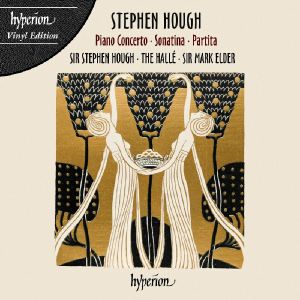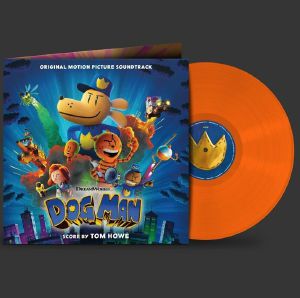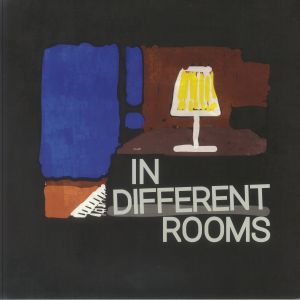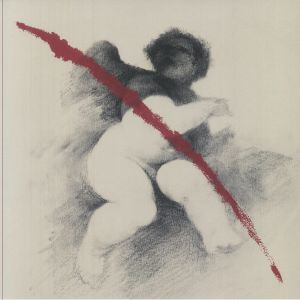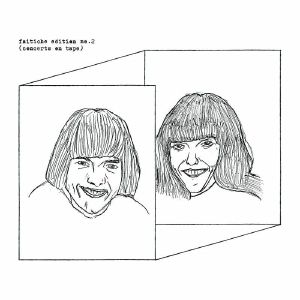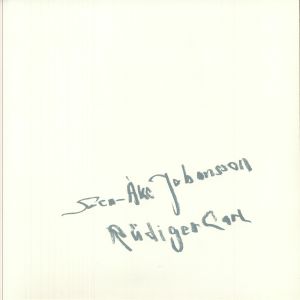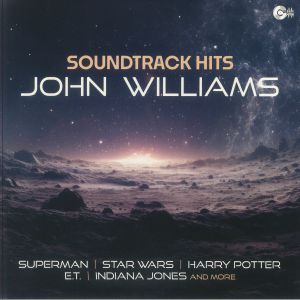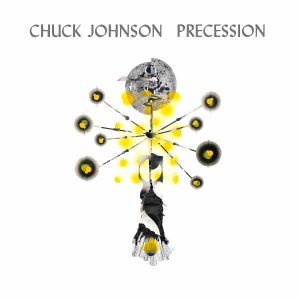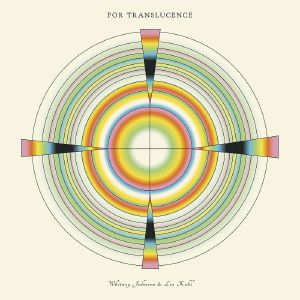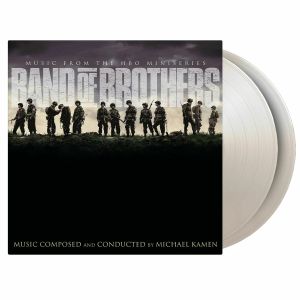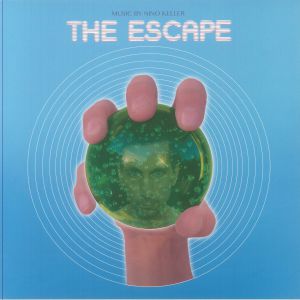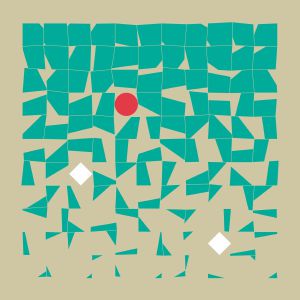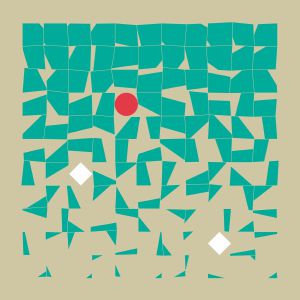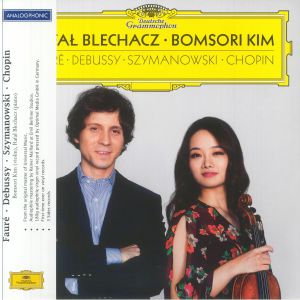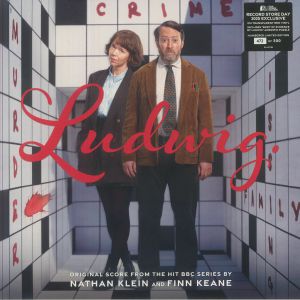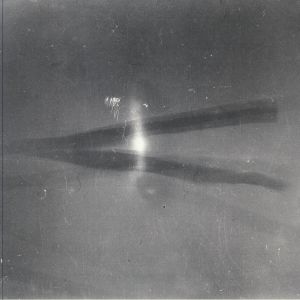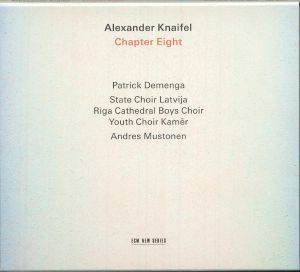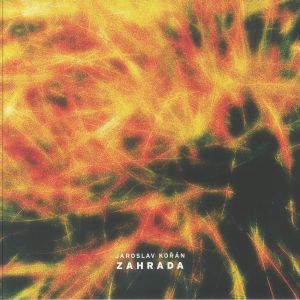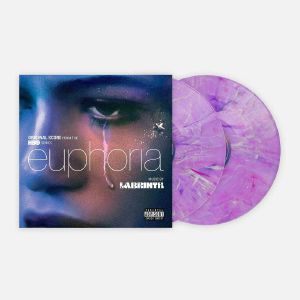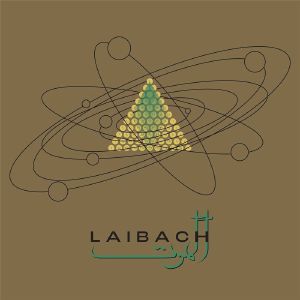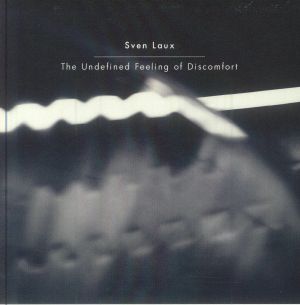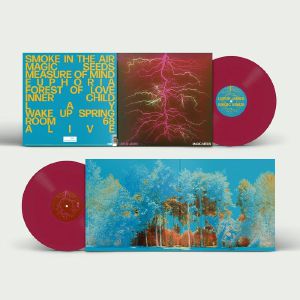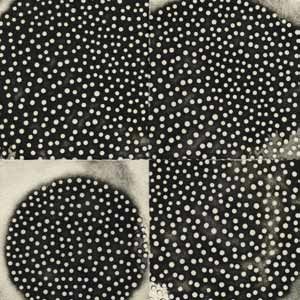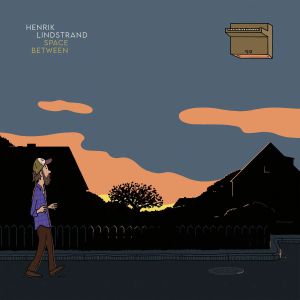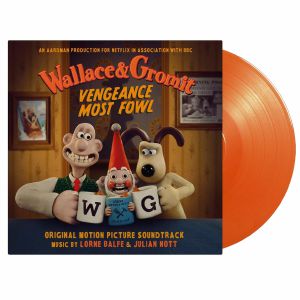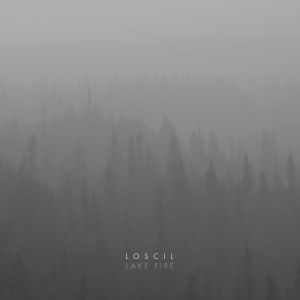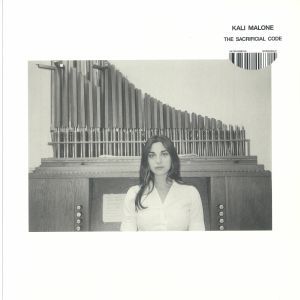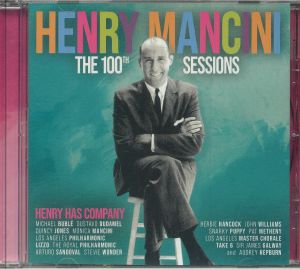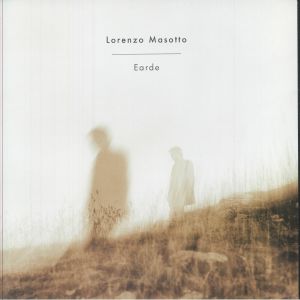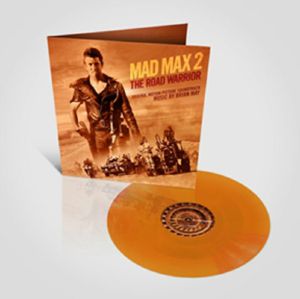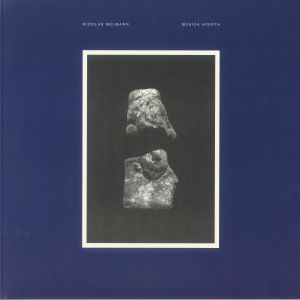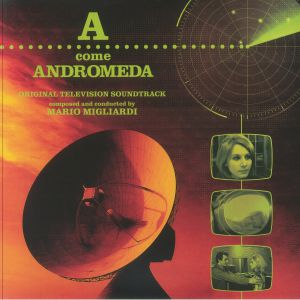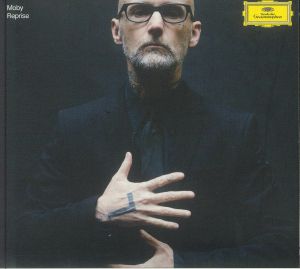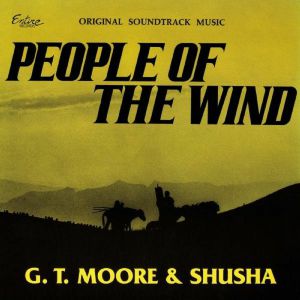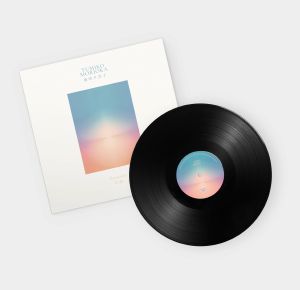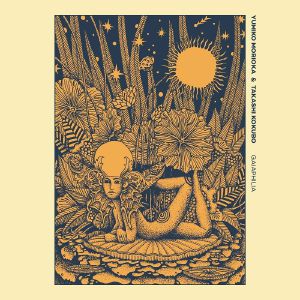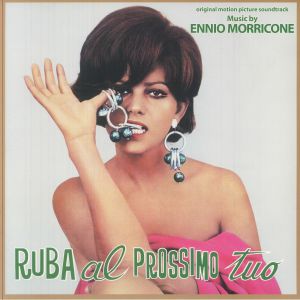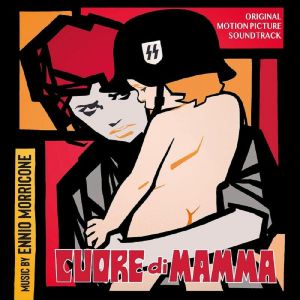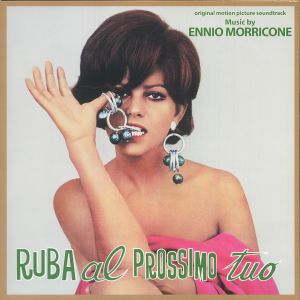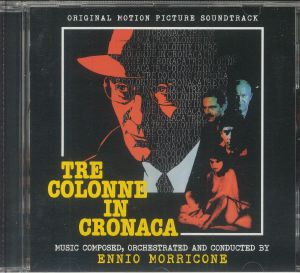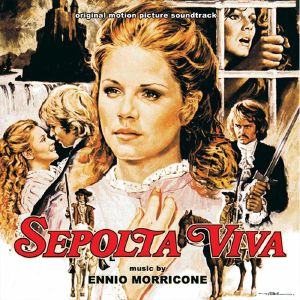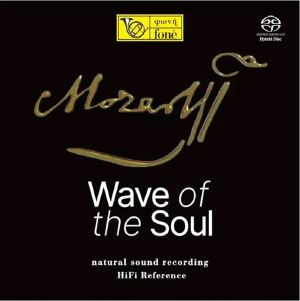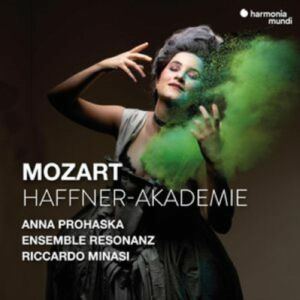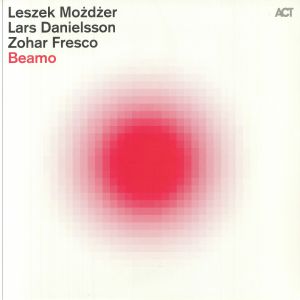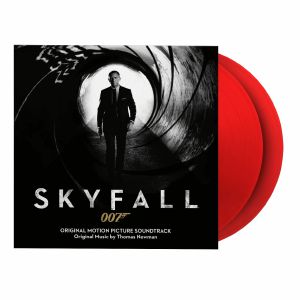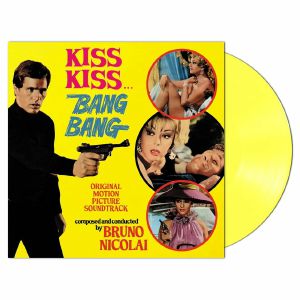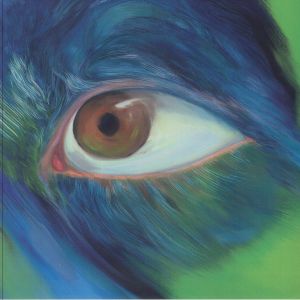Filter
Stock
Artist
Label
Featured
Release Title
Price
Tags
New releases last eight weeks: Modern Classical
Modern Classical vinyl released in the last four weeks
Albums
Piano Concerto Sonatina & Partita (gatefold LP)
Cat: LPA 68455. Rel: 10 Apr 25
in stock $19.94
Dog Man (Soundtrack) (limited gatefold orange vinyl LP with obi-strip)
Cat: SILLP 1812. Rel: 13 May 25
Yung Gravy - "Supa Good!!!" (feat James Brown)
Roger That
Big Jump
Bomb Squad
Reporting On Dogman
Doghouse Memories
Arresting Petey
Off The Case
Flippy Stolen
I Want My Life Back
Okay Papa
Secret Binoculars
Abandoned
Cats & Dogs
Best Friends
Searching For Lil Petey
Flippy Is Back
The Final Showdown
They're Related!
Dog Vs Building
Everyone Is A Hero
Another Final Showdown
Just Need A Friend
Arresting Flippy
Petey The Do Gooder
Ruff Ruff
in stock $30.49
Review: From what we understand about this record, Hualun band member MK had a hand in finishing what was clearly already a beautiful collection of instrumentals. Rubey Hu was polishing off the collection as China finally started emerging from what, from the outside at least, looked like a particularly brutal and unashamedly authoritarian response to the Covid-19 pandemic. A set of serene and incredibly relaxing, playful-leaning piano pieces, MK helped apply various effects and textures, which genuinely elevate what's here. Regardless, though, Rubey's musicianship is inescapable throughout. Eight tracks that feel as though heart and soul have been spilled across the ivories, with additional contributions from another Hualun head, Ding Mao. Really special stuff that will make you want to start exploring Chinese alternative music, if you weren't already.
… Read more in stock $27.16
Ataraxia (clear vinyl LP + insert + MP3 download code)
Cat: PFL 330C. Rel: 27 Mar 25
in stock $34.92
in stock $14.14
Faitiche Edition No 2 (hand-numbered cassette limited to 200 copies)
Cat: FAITEDITION 02. Rel: 17 Apr 25
Review: Following fast on the scorched heels of his most recent record Kosmische Pitch, Jan Jelinek now releases a fresh one for Faitiche: a recorded issuance of his 2022 performance, The Carpenters. Held at Uferstudio 1 in Berlin on July 20, 2022, two pieces transform an irrecognisable Carpenters' sample (the original song name is asterisked for perhaps obvious reasons) into salivatory stretch-scape. The original source is slowly unveiled near the end of the first half, almost of a moment of awakening from hypnosis. Then in the second half, Jelinek re-blurs the material, as if to descend the trough of a sinusoid wave. The Faitiche edition series houses such captivations exclusively on cassette, whose deprecatory format matches the exclusivity of the performance (though tape deck owners can also request a free digital download code).
… Read more in stock $17.73
in stock $26.05
Review: The name John Williams towers over the world of movie scores. The American has made some of the most critically acclaimed soundtracks of all time over the last seven decades, and has worked with cinematic greats like Steven Spielberg and George Lucas on his way to picking up 26 Grammy Awards, five Academy Awards and countless other awards.This album collects some of his greatest ever silver screen moments, starting with maybe the biggest, the Star Wars theme. Many more from that film plus classics like Jaws and Indiana Jones also feature on what is a brilliantly nostalgic collection.
… Read more in stock $26.89
in stock $13.02
For Translucence (LP (indie exclusive))
Cat: DC 951. Rel: 27 Mar 25
Review: Whitney Johnson and Lia Kohl's debut album has evolved over several years. Its roots lay in their shared practice of free improvisation on viola and cello and flourished into a unique neophonic orchestral expression. That makes For Translucence both stimulating and soothing - a very alive form of musical meditation where layers of acoustic strings, wispy synths, evocative field recordings and radio and sine waves intertwine and grow while mesmerising you even more. Though always moving and shapeshifting the effect is cathartic as a fine balance is struck between experimentation and cohesion and the organic and the electronic.
… Read more in stock $24.78
Band Of Brothers (Soundtrack) (limited numbered 180 gram audiophile white vinyl 2xLP + booklet)
Cat: MOVATM 079W. Rel: 15 Apr 25
Review: "We few, we happy few, we band of brothers..." So said Henry V before the battle of Agincourt in one of Shakespeare's many lauded histories. The quote went on to Christen Stephen Ambrose's 1993 novel and a subsequent American war drama miniseries of the same name, chronicling the journey of the "Easy Company," a group of American paratroopers during World War II. Training, combat tussles, and fraternal bonds are given a brutal portrayal in the film, and this mood of brutality and endurance was not unnoticeably underscored by Michael Kamen's soundtrack, now reissued on gatefold 2xLP. Kamen, known for his scores for Die Hard, X-Men and Memento, brought out a mood of orchestral fortuity, successfully mirroring the film's intent to portray themes of glory, tragedy and camaraderie, all of which ooze from its many orchestral swells and windfalls.
… Read more in stock $43.51
The Escape (pink vinyl LP limited to 300 copies)
Cat: LPCOOPR 042C. Rel: 25 Mar 25
in stock $27.44
Review: Dubio makes no secret of its intention, from the word go. The opening, titular track give us the lay of the land. A record inspired by the soundtrack to a puzzle game of the same name, there's a cyclical, perpetual kind of motion to everything here. Obviously, we know where the start of each piece is, and the conclusion. But the vibe isn't forward motion, nor backwards. Instead, there's a gradual meandering tempo, a loose, open-ended kind of aesthetic that invokes the old cliche - the journey, not the destination. And with that, you can't help but sense a little mystery here, too. Kettel isn't always known for this type of free spirited exploration, and yet here we are, and how we got here is part of what we're trying to figure out. Musically, that means warm pads and string refrains, twinkling chimes, plodding, almost unsteady percussion and a sense of wonder and perpetuity throughout.
… Read morePlayed by: Alexis Le-Tan, Juno Recommends Ambient/Drone
in stock $31.59
in stock $17.73
Faure Debussy Szymanowski Chopin (gatefold 180 gram audiophile vinyl 2xLP with obi-strip)
Cat: ANALPI 43195. Rel: 28 Mar 25
Claude Debussy - "Sonata For Violin And Piano In G Minor L148: Intermede. Fantasque Et Leger" (5:32)
Karol Szymanowski - "Sonata For Piano And Violin In D Minor Op 9: Allegro Moderato. Patetico" (8:18)
Karol Szymanowski - "Sonata For Piano And Violin In D Minor Op 9: Andantino Tranquillo E Dolce" (7:08)
in stock $101.71
Ludwig (Soundtrack) (Record Store Day RSD 2025) (limited numbered translucent red vinyl LP + insert)
Cat: SILLP 1784. Rel: 19 Apr 25
in stock $31.04
in stock $24.66
in stock $15.51
in stock $29.11
Zero 999 (silver vinyl LP + MP3 download code in die-cut sleeve limited to 200 copies)
Cat: OOH 42. Rel: 24 Apr 25
in stock $23.27
Euphoria (Soundtrack) (limited gatefold purple marbled vinyl 2xLP)
Cat: VMP 2350LP. Rel: 10 Apr 25
in stock $42.12
Review: Laibach and A/political present Alamut, a new, symphonic album inspired by Vladimir Bartol's 1938 novel of the same name. Recounting an 11th-century Persian tale - centered on the charismatic and enigmatic Hassan-i Sabbah, leader of the Nizari Ismailis and founder of the Order of Assassins - this is a shadowy, ninja-black-wax initiation into an esoteric order of spies. Laibach's work blends classical Persian poetry, minimalist orchestral textures, and industrial elements, reflecting both historical propaganda tactics and Bartol's critique of rising Fascism in 1930s Italy. Released on double vinyl and CD box set through Mute, the album was recorded in 2022 at a former Crusader castle in Ljubljana; it features the RTV Slovenia Symphony Orchestra, Tehran's Human-Voice Ensemble, the Gallina Women's Choir, and the women's accordion orchestra AccordiOna, conducted by Navid Goharib.
… Read more in stock $31.87
The Undefined Feeling Of Discomfort (CD limited to 100 copies)
Cat: WLR 180. Rel: 17 Mar 25
in stock $10.82
Magic Seed (limited numbered gatefold ruby red vinyl LP + booklet (indie exclusive))
Cat: ALNLP 73R. Rel: 17 Mar 25
in stock $38.79
in stock $15.80
Space Between (gatefold 180 gram vinyl LP)
Cat: LTBR 251LP. Rel: 17 Apr 25
in stock $23.27
Wallace & Gromit: Vengeance Most Fowl (Soundtrack) (limited numbered 180 gram audiophile orange vinyl LP + booklet)
Cat: MOVATM 435C. Rel: 13 May 25
in stock $34.10
Review: Originally conceived as a suite for electronics and ensemble but then abandoned, the latest from Vancouver-based ambient producer Scott Morgan aka Loscil sees him restructure, remix and transform the ashes of it into something newian album that feels like a smouldering landscape, its textures layered with both loss and rebirth. Loscil's Lake Fire is an album born from destruction and reinvention. Thematically, Lake Fire draws inspiration from a road trip into the mountains Morgan took to mark his personal half-century milestone. eventually surrounded by wildfires and thick smoke, and that experience seeps into the album's DNA, shaping its dense, hazy atmospheres. The title itself reflects a haunting ironyiforest fires often take their names from nearby lakes, a stark juxtaposition of destruction and serenity. The album unfolds like a shifting mist. 'Spark' is dynamic and drenched in deep chords that ripple through a cloudy haze. 'Arrhythmia' carries a heavy build, swelling with intensity before receding into silence. These pieces, along with the rest of the album, feel like echoes from another worldidistant yet deeply resonant. Released on Kranky, which has long been a home and supporter of his music, Lake Fire is another great example at Morgan's ability to craft ambient soundscapes that are both vast and intimate. It's a hypnotic listen and an exploration of impermanence and transformation wrapped in a thick sonic fog.
… Read more in stock $42.12
Review: Kali Malone's The Sacrificial Code stands as a defining work of 21st Century minimalism, shaped by years of intensive study. Originally released in 2019, the album emerged from her time at Stockholm's Royal College of Music, where she explored sound, space, and alternate tuning systems under the guidance of organ tuner Jan Borjeson. Stripping composition down to its starkest form, she embraced canons and slow-moving harmonic shifts, slowly but surely stepping into a sound emphasising monumentality. Now, six years later, The Sacrificial Code is reissued via Ideologic Organ, featuring a new 2023 recording of the title track on a 16th-century organ. Malone's self-taught recording techniques bring out the instrument's spirant resonance, creating a time-dilating sound. Less mournful, more tranquil, the new version mirrors the concurrent transformations of music and listeners in step, over time.
… Read more in stock $37.14
in stock $14.41
Review: Lorenzo Masotto is an Italian pianist and composer from a village near Verona who studied at the Conservatory F.E. Dall'Abaco and the Hochschule fur Musik Franz Liszt in Weimar. His music now returns to Whitelabrecs with his new album Earde which is inspired by the landscapes surrounding his hometown in Northern Italy and reflects the beauty of local nature and Masotto's travels through Iceland and the Dolomites. Recorded in a deconsecrated church to capture its natural acoustics, the album explores the deep connection between place, memory and creativity which gives rise to a meditative, harmonic experience.
… Read more in stock $29.92
Mad Max 2: The Road Warrior (Soundtrack) (limited gatefold translucent amber vinyl LP)
Cat: SILLP 1559O. Rel: 15 Apr 25
in stock $36.02
Review: Buenos Aires-born but now based in Barcelona, Nicolas Melmann explores sound's social and poetic dimensions through what he calls "transdisciplinary projects." He is inspired by Erik Satie's "furniture music" and his compositions create spaces of calm and contemplation as evidenced here on this lovely new blue LP. Musica Aperta blends acoustic and electronic elements with rich harmonies where soft textures meet delicate raspiness and it is divided into three parts. Each one slowly immerses you in time while echoing Satie's concept, Arvo Part's minimalism and Phill Niblock's roughness. It is a calming and cathartic escape from the fast-paced of modern life.
… Read more in stock $29.11
A Come Andromeda (Soundtrack) (reissue) (Record Store Day RSD 2025) (limited clear "acid" green vinyl LP + insert)
Cat: VMLP 261. Rel: 19 Apr 25
in stock $34.92
in stock $15.25
Review: In 1976 Anthony Howarth produced a documentary film about the Badabi tribe in Southern Iran. Each spring, this indigenous group would make the difficult journey across the Zagros mountains and valleys to ensure their sheep had new pastures to graze. Led by Jafar Qoli, the movie chronicles this epic trek and various events along the way. Taking breathers only for weddings and mediation between contacts, and grappling with torrential rain and perilous terrain, among other challenges, it's an inspiring odyssey to say the least. The music fits the bill perfectly, bringing together the legendary Persian songwriter, editor and singer Shush? Guppy and revered English singer, composer and multi-instrumentalist Gerald Thomas Moore, transporting us to a time, place and people long-since committed to memory.
… Read more in stock $24.94
Review: Yumiko Morioka's Resonance was originally released in 1987 on Akira Ito's Green & Water imprint. Album, artist and label would all trifect to help along the enviro-ambient sound of which Ito was to become a part. For its quiescent but heartrending chamber pianos, Resonance was known for its use mostly in documentaries and as background music for spas, which hardly befitted the weight of Morioka's actual achievement at the time. By 1994, Morioka had moved to California, where she had shifted her focus to family life, unaware that Resonance had gained a new following outside Japan via online platforms. In 2017, when Morioka learned of this, she was recovering from a devastating California wildfire that destroyed her home and belongings. Despite the tragedy, she returned to Japan, worked in commercial music, and later opened a chocolate shop in Tokyo. Resonance, recorded on a Bosendorfer grand, blends improvisation with calm, introspective beauty, influenced by both Japanese environmental music and Western composers such as Erik Satie. The album was remastered in 2023, preserving its serene quality.
… Read morePlayed by: Juno Recommends Ambient/Drone
in stock $26.05
Review: Japanese artists Yumiko Morioka and Takashi Kokubo unite for a journey through blended piano, atmospheric synth and nighttime field recording. Both Morioka and Kokubo are pioneers of Japanese new age import, with the former lyricist, pianist and composer trailblazing with her sole 1987 album Resonance and the latter composer and musical environmentalist responsible for a string of geometrically-charged, fantastical LPs from 1980 onwards. Morioka herself makes a welcome return to music after taking a staunch step back to raise her family in the late 80s; her music has since been quietly cherished, and now Gaiaphilia evidences her not-lost ivorian flair, with her piano melding blissfully with pop-out sea- and soundscapes.
… Read more in stock $26.05
Ruba Al Prossimo Tuo (Soundtrack) (translucent magenta vinyl LP limited to 200 copies)
Cat: SFTS 04LPM. Rel: 11 Apr 25
Review: Morricone aficonadi will be champing at their costume jewellery for this one. Scored for the Sergio Martino film Ruba Al Prossimo Tuo (1976), Morricone provided a hauntingly atmospheric soundtrack, marking the flick out from the rest in the Italian Giallo wave, and its usually otherwise funk-backed, upbeat exploitation emotes. The film follows a chilling, traitorous femme-noir formula, as a young woman, Giulia, is put through a seedy ringer after witnessing a brutal murder. As Edda Dell'Orso sings above Morricone's samba arrangements, the record is notable for its renderings of classic Latin style in much broodier, more dubious tones.
… Read more in stock $25.78
in stock $21.62
Cat: SFTS 04LPB. Rel: 11 Apr 25
in stock $21.90
in stock $20.51
Cat: CDCR 153. Rel: 25 Apr 25
in stock $19.13
Wave Of The Soul (Hybrid SACD)
Cat: 801287 1026852. Rel: 25 Apr 25
in stock $21.06
Haffner Akademie (CD)
Cat: HMM 902704. Rel: 25 Apr 25
in stock $19.94
Beamo (gatefold 180 gram vinyl 2xLP + MP3 download code)
Cat: ACTLP 90651. Rel: 27 Mar 25
in stock $27.99
in stock $40.75
Skyfall (Soundtrack) (reissue) (limited numbered gatefold 180 gram audiophile red vinyl 2xLP + booklet)
Cat: MOVATM 177R. Rel: 07 May 25
! low stock $45.44
Kiss Kiss Bang Bang (Soundtrack) (Record Store Day RSD 2025) (clear yellow vinyl LP + insert)
Cat: VMLP 267. Rel: 19 Apr 25
Review: Definitely not to be confused with the 2005 Neo-noir US movie of the same name, Kiss Kiss Bang Bang was a 1966 Eurospy comedy directed by Duccio Tessari. The plot, which contains several genre tropes, revolves around a retired espionage agent who receives a death sentence after being caught trying to steal L1 million dollars. At the last minute, he's offered a reprieve, if he can steal a secret formula before terrorist Mr X does. We won't divulge what happens next, but as spy movies tend to, there are plenty of curveballs and red herrings thrown at us. Bruno Nicolai, a powerhouse of Italian cinema during this time, whose tracks have found their way into Quentin Tarantino's Kill Bill: Volume 2 and Once Upon A Time In Hollywood, delivers an archetypal score for this cinematic canon, packed with tension building percussive movements, swooning and sweeping string and woodwind pop, and even the odd gentle slow dance.
… Read more in stock $34.92
in stock $22.46

 USD
USD





